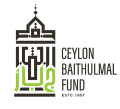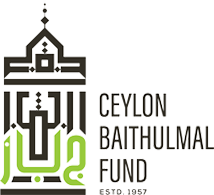Zakat (pronounced za-kart) is an Arabic term given to a form of almsgiving amongst Muslims around the world. Translating as ‘that which purifies’, is an Islamic religious observation and one of the ‘Five Pillars of Islam’, ranked in terms of importance amongst Muslims after ‘Prayer.’
As a pillar of Islam, Zakat is a mandatory charitable obligation to Muslims. 2.5% (or 1/40) of an individual’s accumulated wealth and savings must be collected and distributed amongst the lesser privileged and the poor. Whilst the collection and distribution of Zakat is often managed by the state in Muslim nations such as Saudi Arabia, Pakistan and Malaysia, it falls upon state approved institutions as Ceylon Baithulmal Fund to champion this noble cause in Sri Lanka, which it has performed consistently and effectively since 1957.

